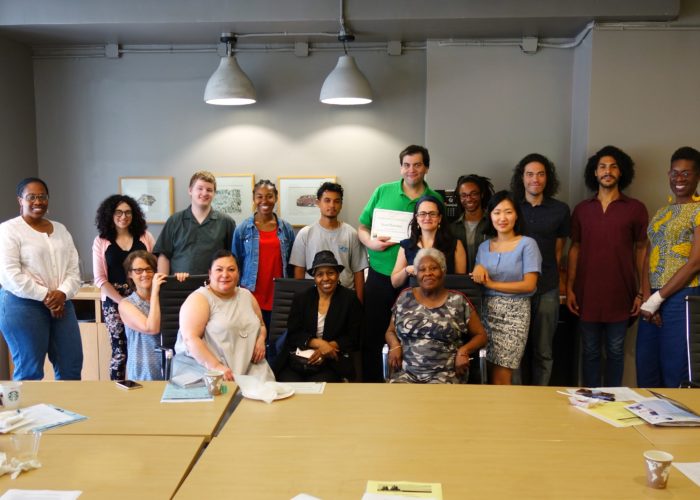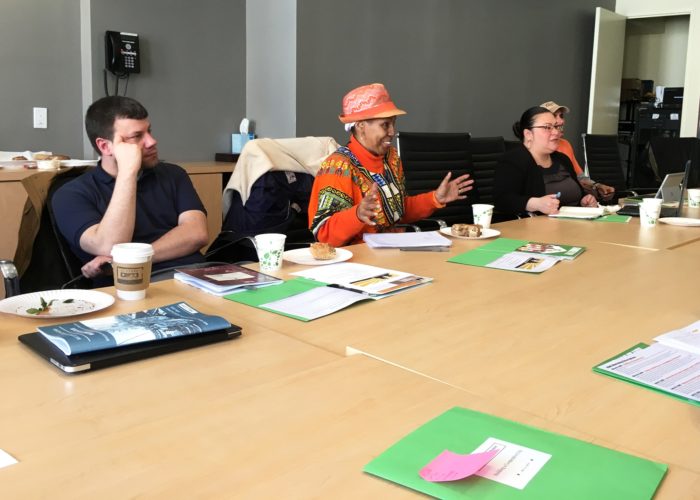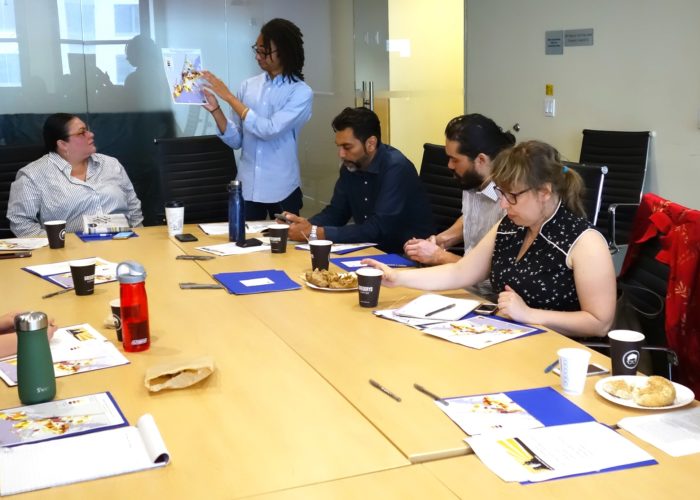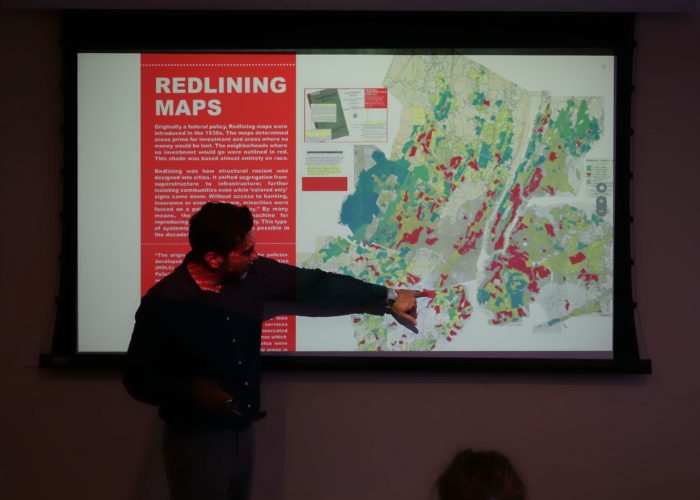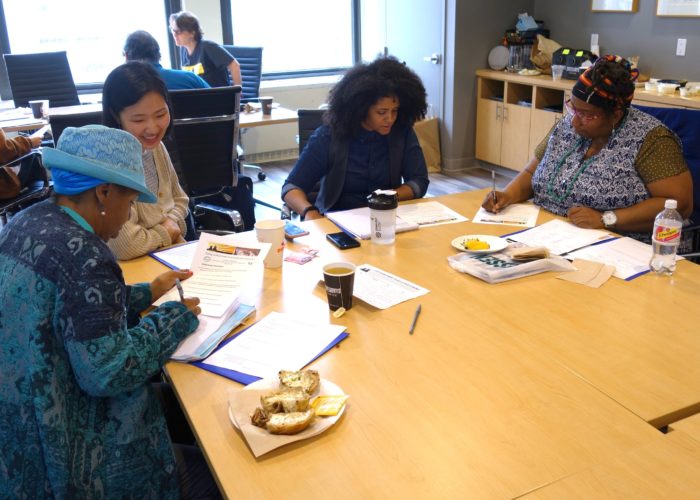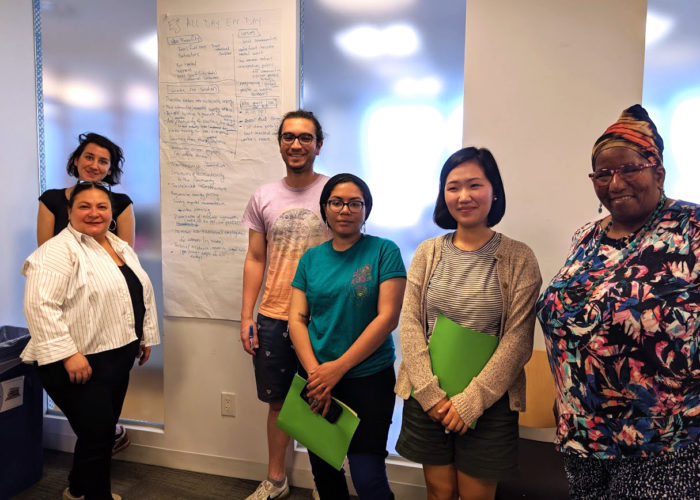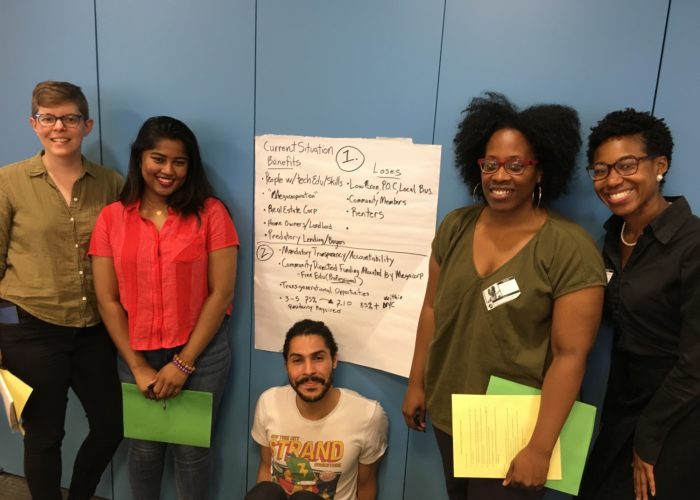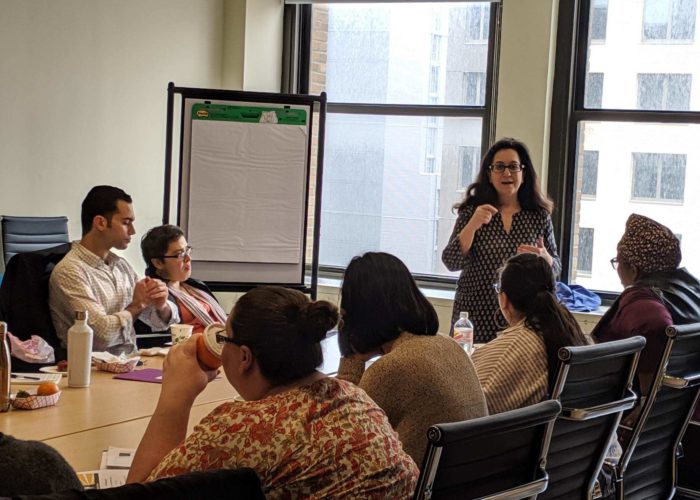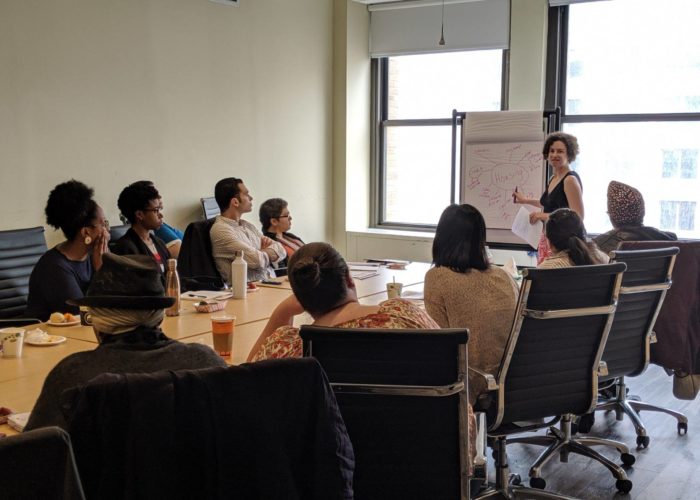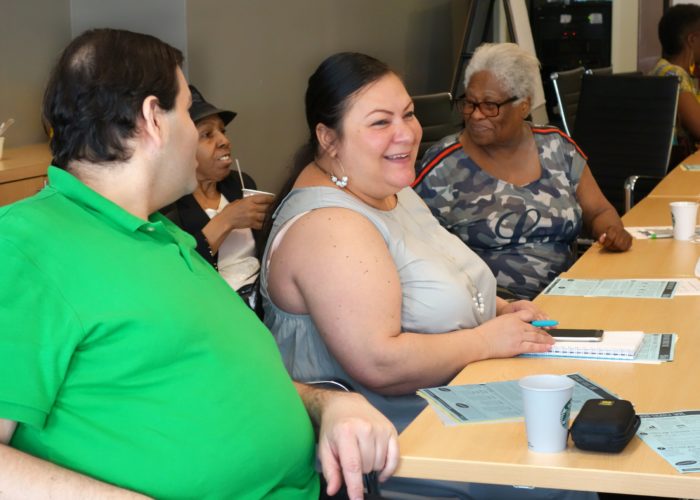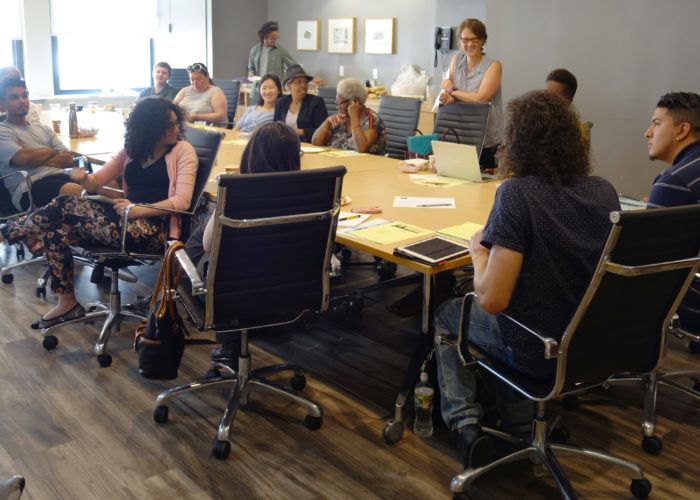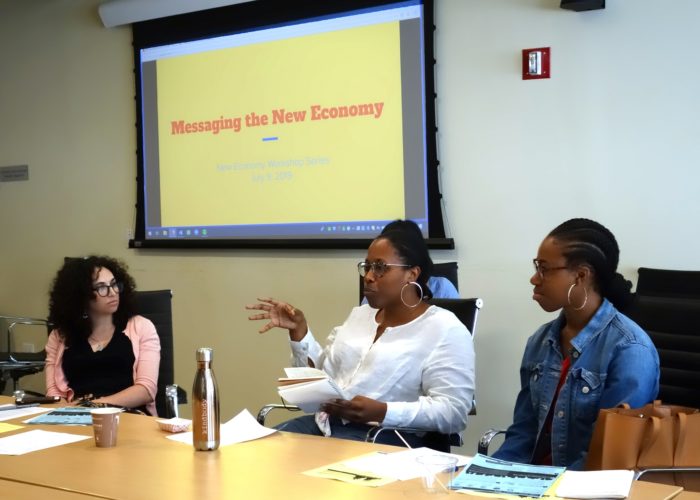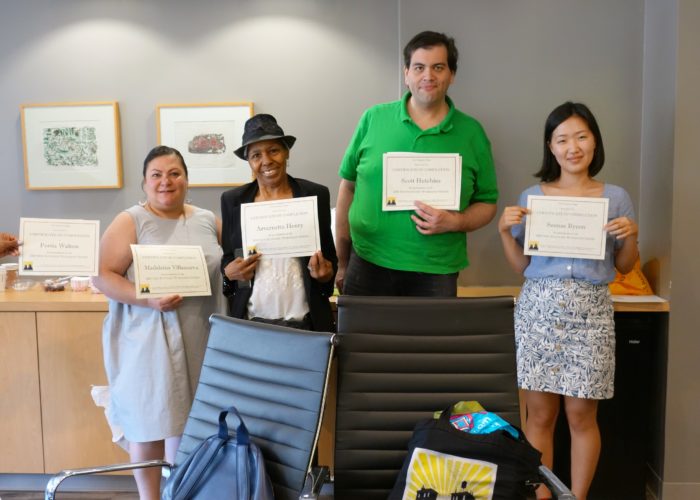Blog
August
2019
12
Grappling with the Past, Imagining the Future: A Recap of our 2019 Workshop Series
Posted by Juleon Robinson
Over the past two months, leaders and organizers from more than 20 NYC community groups have come together to learn about pressing economic justice issues and strategies for change. Our five workshops explored topics ranging from the history of redlining in New York to envisioning an economy free from sexism and patriarchy. Feel like you missed out? Read on for a recap of our 2019 New Economy Workshop Series!
In our first session, “Building a Cooperative City,” we explored what a regenerative economy could—and does—look like in New York City. Workshop participants unpacked the values and assumptions of our current economy, teasing out different ways this economy manifests in their communities—stratified schools, redlining, real estate speculation, and more. With this in mind, we brainstormed a new economy; one that values interdependence and equity, and pictured how that new world might look in practice. In the second half of our session, we examined examples of this “new economy” already present in New York City. Two guest presenters, Annel Hernandez from the New York City Environmental Justice Alliance and Maureen Genna from the Lower East Side People’s Federal Credit Union, described ways in which their organizations are creating and supporting a new economy every day.
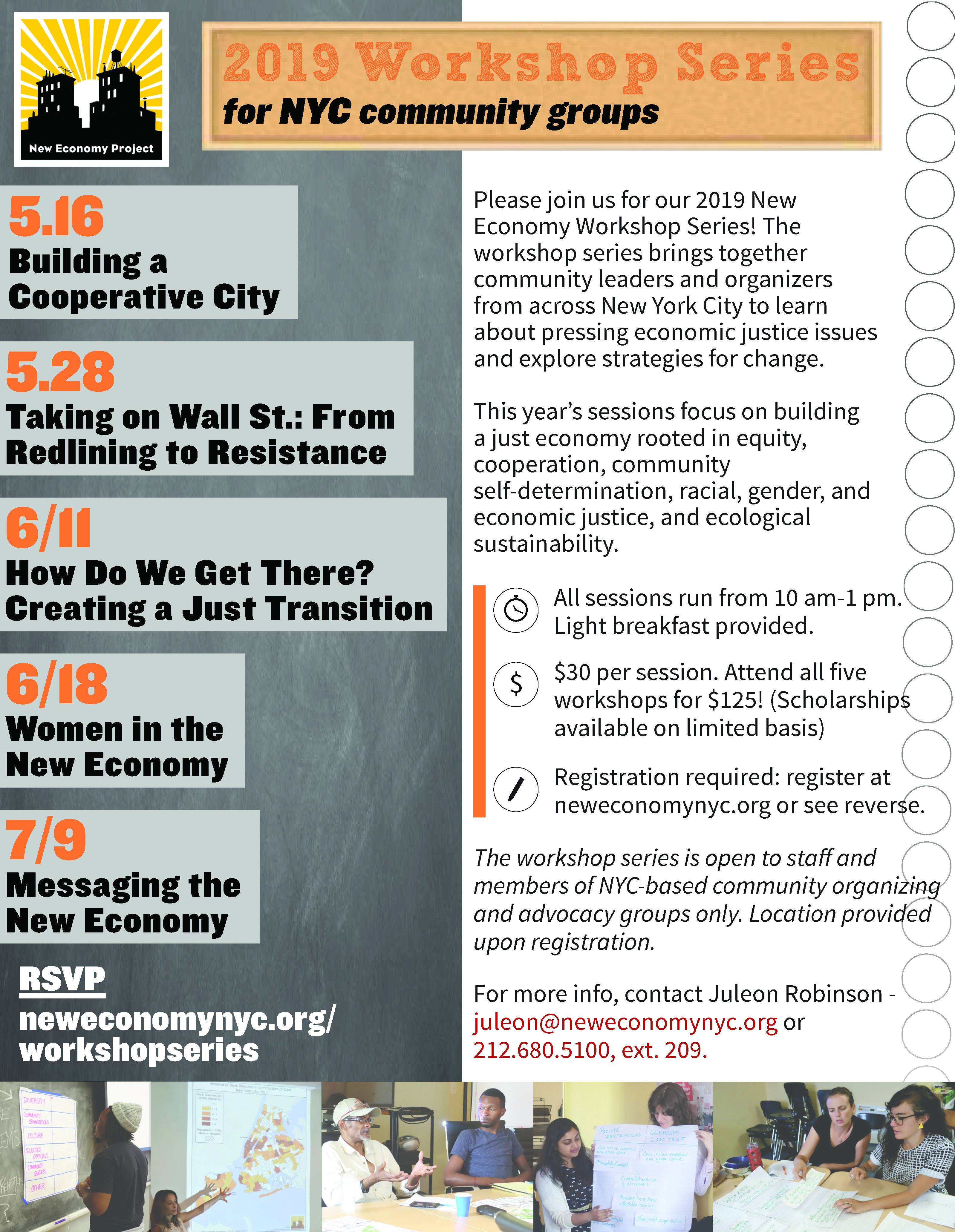
Grounded in a collective vision of the world we want to see, our second session dove into the systems designed to keep the current power structures—and their modes of extraction, segregation, and inequality—in place. This session, “Taking on Wall Street: From Redlining to Resistance,” was facilitated by Greg Jost, New Economy Project’s board chair and Director of Organizing at Banana Kelly Community Improvement Association. Greg led the group through a history of Wall Street’s extraction of wealth from neighborhoods of color and immigrant neighborhoods, through systemic redlining. His presentation immersed participants in the historical maps and government documents that embedded inequality in the very blocks of our city, as well as powerful community-led efforts to challenge and “undesign” this injustice. The session concluded with participants working together to apply this framework to their own campaigns, focusing on structures and institutions that perpetuate inequality and segregation.
The discussions and questions participants generated in the first two sessions underscored the need for transformational change, not just for racial and economic justice in New York, but for the sustainability of our planet. This existential imperative was the focal point of our third session, “How Do We Get There? Creating a Just Transition.” After an introduction to the “just transition” framework, which grew out of the democratic organizing principles of the environmental justice movement, participants worked through case examples based on active campaigns for justice in New York. We crafted these examples to highlight tensions that frequently arise in moving from our current extractive systems to the regenerative world we are working to build together.
Our exploration of systemic injustice continued apace with the fourth session, “Women in the New Economy,” featuring guest presenters Azadeh Khalili, New Economy Project’s board secretary and longtime advocate for gender justice, and Dahlia Goldenberg, executive director of The Women’s Organizing Network. This workshop emphasized the interlocking systems and histories of oppression that are deeply embedded in our institutions and within ourselves. After framing many ways that patriarchy, racism, and colonialism intersect and manifest in our communities, Azadeh led workshop participants through an exercise that envisaged a “History of the Future,” in which we have fully dismantled those oppressive ideologies. In imagining this future, participants created vivid, aspirational narratives for how our current struggles can—and will!—be won.
In our final workshop, “Messaging the New Economy,” we contemplated how our organizations can visualize, frame, and communicate the new economy we’re working to create. As a group, we analyzed messaging strategies from extractive industries (e.g., fossil fuel corporations, Wall Street banks) as well as strategies employed by aligned organizations and coalitions, taking note of what makes for effective communications tools in mobilizing for change. Using a framework from the Center for Story-Based Strategy, breakout groups then brainstormed messaging strategies around two example campaigns: community-led solutions to the housing crisis and a campaign to halt a pipeline being built through the New York Harbor.
Thanks to an amazing cohort of groups and inspiring guest presenters, the 2019 New Economy Workshop Series created an environment for learning, growth, and community. While each session provided frameworks and tools to spark new ideas, participants were also excited to build power with each other and envision an economy and city grounded in justice, equity, and cooperation. As these conversations continue outside of the series, we look forward to engaging with groups in the fight for a New York City that works for all New Yorkers.
For more ways to get involved with New Economy Project’s community education work check out the following:
COMMUNITY WORKSHOPS FOR YOUR ORGANIZATION
Through interactive sessions, tailored to your organization, participants work together to demystify systemic failings of our current economy, chart out a vision for a just economy, and explore models and strategies for change.
For more information or to schedule a workshop for your membership or staff, contact Juleon at 212-680-5100 or juleon@neweconomynyc.org.
